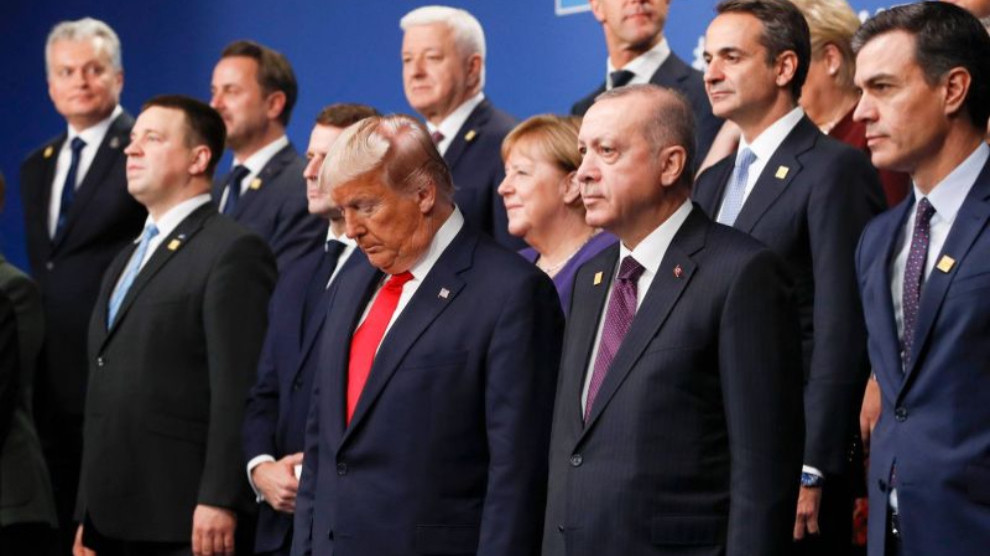Erdoğan backs down at NATO summit
After his threats to agree to the defence plan to protect the Baltic countries and Poland only if NATO classifies the YPG as a terrorist organisation, Erdoğan has now stepped back.
After his threats to agree to the defence plan to protect the Baltic countries and Poland only if NATO classifies the YPG as a terrorist organisation, Erdoğan has now stepped back.

Despite differences in content and personal disputes, the NATO states agreed on a joint final declaration at their summit in London on the 70th anniversary of the founding of the Alliance, in which they emphasized their mutual commitment to support and the importance of the "transatlantic link between Europe and North America". For the first time, the declaration also mentions China, an emerging military power, as a potential new threat.
The Turkish President Recep Tayyip Erdoğan had started with a threat to the NATO summit in Watford, Britain - hardly on the spot, he then appeared more moderate again in the presence of the member countries. In the run-up to the meeting NATO prepared a defence plan to protect the Baltic countries and Poland in order to counteract Moscow's possible expansion efforts. The plan was developed in response to the Russian annexation of the Crimea and the war in Ukraine. However, Ankara had announced that it would block the defence plan. The Turkish government said they would only agree if the military alliance recognized the YPG as a terrorist organization. "It would be a pleasure for us to discuss this matter. But as long as our NATO friends don't recognize those we consider as terrorist organizations as such, we will counter any step to be taken there," said Erdoğan before his departure to London. The change of threatening gestures and concessions by the head of the Turkish regime, however, came as no surprise.
Macron: NATO countries not prepared to classify YPG as terrorist organisation
France's President Emmanuel Macron stated at the NATO summit on Wednesday that member states are not prepared to classify the YPG as a terrorist organisation, as demanded by Turkey. "It is clear that we do not agree. And I think there is a consensus on that," Macron said.
Macron on Tuesday repeatedly warned that ISIS was making a comeback in Syria because of the Turkish invasion since it had weakened the mainly Kurdish Syrian Defence Forces, including the YPG, that have formed the backbone of the fight against ISIS. The French President accused Turkey of sometimes working with ISIS proxies.